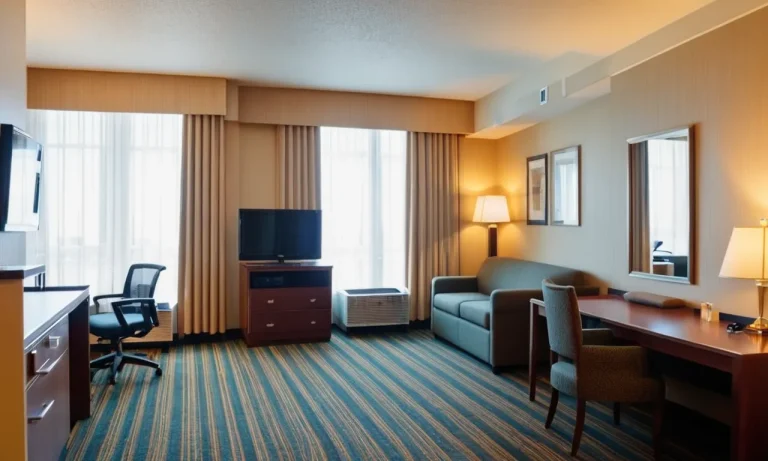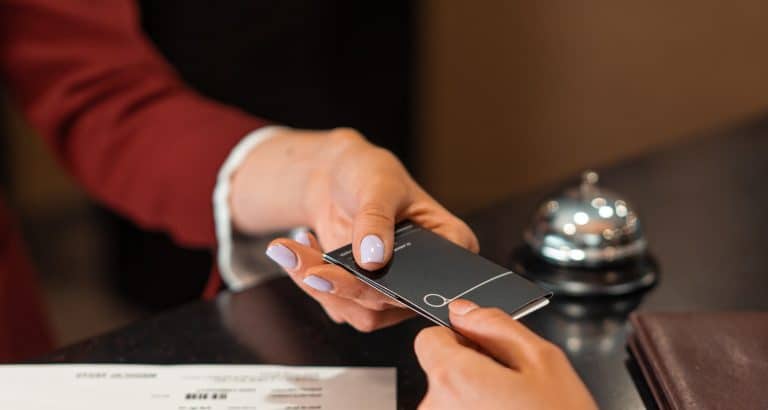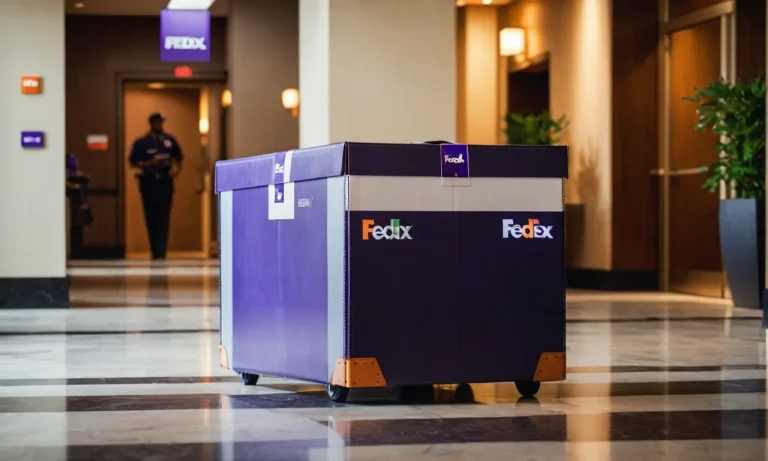Can a Hotel Charge You for Checking In Early?
Imagine this scenario: you’ve been on the road for hours, and you arrive at your hotel well before the standard check-in time. You’re exhausted and eager to freshen up, but the front desk informs you that an early check-in fee will apply.
Frustration sets in, and you’re left wondering if this practice is even legal.
If you’re short on time, here’s a quick answer to your question: Yes, hotels can charge you for checking in early, but the legality and policies surrounding this practice vary widely.
In this comprehensive article, we’ll delve into the nuances of early check-in fees, exploring the reasons behind them, the legal implications, and strategies to avoid or minimize these charges. We’ll also provide insights from industry experts and offer practical tips to ensure a hassle-free hotel experience.
Understanding Early Check-In Fees
What are early check-in fees?
Early check-in fees are charges imposed by hotels when guests arrive before the designated check-in time and wish to access their rooms immediately. These fees are typically added to the room rate and can vary depending on the hotel’s policies and the number of hours the guest checks in early.
For example, some hotels may charge a flat fee, while others may charge an hourly rate until the standard check-in time.
Why do hotels charge for early check-in?
Hotels charge for early check-in for several reasons. Firstly, it helps them manage their operations efficiently. The standard check-out and check-in times are designed to allow housekeeping staff sufficient time to clean and prepare rooms for new guests.
By charging an early check-in fee, hotels can offset the additional costs and staffing requirements associated with accommodating guests before the designated time.
Additionally, early check-in fees act as a revenue stream for hotels. According to a study by Hotel News Resource, hotels can generate up to 5% of their total revenue from ancillary fees, including early check-in charges.
This additional income can help hotels maintain their profitability and reinvest in their facilities and services.
Industry standards and practices
While there are no universal standards for early check-in fees, most hotels follow similar practices. According to a survey by TravelPulse, 😊 the average early check-in fee ranges from $20 to $50, with some luxury hotels charging up to $100 or more.
However, many hotels also offer complimentary early check-in as a perk for loyalty program members or guests with higher-tier status.
It’s worth noting that some hotels are more flexible with early check-in policies than others. Some may allow guests to check in a few hours early without a fee if rooms are available, while others strictly enforce their designated check-in times.
To avoid surprises, it’s always best to inquire about a hotel’s early check-in policies and fees before booking your stay.
| Hotel Category | Average Early Check-In Fee |
|---|---|
| Budget | $20 – $30 |
| Mid-Range | $30 – $50 |
| Luxury | $50 – $100+ |
Legal Considerations and Consumer Rights
When it comes to early check-in fees, hotels must navigate a complex web of regulations and consumer protection laws. These legal frameworks aim to strike a balance between the business interests of hotels and the rights of guests. Let’s delve into the key aspects of this intricate landscape.
Regulations and laws governing early check-in fees
While there are no specific federal laws in the United States that directly address early check-in fees, several states have enacted legislation to regulate this practice. For instance, Massachusetts law prohibits hotels from charging fees for early check-in unless the room is available and ready for occupancy before the designated check-in time.
Similarly, New York state law requires hotels to disclose any additional charges, including early check-in fees, upfront.
Beyond state-level regulations, the Federal Trade Commission’s (FTC) Truth in Advertising laws mandate that hotels provide accurate and transparent information about their fees and policies. Failure to do so could constitute deceptive advertising practices, potentially leading to fines or legal action.
Consumer protection laws and hotel policies
Consumer protection laws play a crucial role in safeguarding guests’ rights when it comes to early check-in fees. The FTC’s guidelines emphasize that hotels must clearly disclose all mandatory fees, including early check-in charges, upfront during the booking process.
Failure to do so could be considered an unfair or deceptive practice.
Additionally, many hotel chains and independent properties have implemented policies regarding early check-in fees. Some hotels may offer early check-in as a complimentary service for loyalty program members or charge a nominal fee to cover the costs of preparing the room ahead of schedule.
However, these policies must be transparent and consistently applied to avoid potential legal issues or consumer backlash.
Transparency and disclosure requirements
Transparency and clear disclosure are paramount when it comes to early check-in fees. According to a 2018 study by the American Hotel & Lodging Association, 89% of consumers believe hotels should disclose all mandatory fees upfront.
Failure to do so can erode consumer trust and potentially lead to legal consequences.
Hotels must prominently display their early check-in fee policies on their websites, during the booking process, and at the property itself. This information should include the specific fees charged, any conditions or exceptions, and the rationale behind the fees (e.g., covering the costs of additional cleaning or staffing).
Clear communication and transparency can go a long way in building trust with guests and avoiding misunderstandings or disputes.
Strategies to Avoid or Minimize Early Check-In Fees
Negotiating with the hotel
One of the best ways to avoid or minimize early check-in fees is by negotiating with the hotel directly. Many hotels are willing to waive or reduce these fees, especially if you’re a frequent guest or if you’re booking for a special occasion.
😊 Don’t be afraid to politely ask the front desk staff if they can make an exception or offer a discount. You might be surprised at how accommodating they can be!
According to a survey by HospitalityNet, nearly 60% of hotels are open to negotiating early check-in fees with guests, especially during low occupancy periods. So, it’s always worth a try!
Loyalty programs and elite status benefits
If you’re a member of a hotel’s loyalty program or have elite status with a particular chain, you may be eligible for complimentary early check-in or reduced fees. Many hotels offer these perks as a way to reward their most loyal customers.
👏 For example, Marriott Bonvoy members with Platinum Elite status or higher can enjoy early check-in as early as 10 AM, subject to availability.
Don’t forget to inquire about these benefits when booking your stay or checking in. The hotel staff may not always offer them upfront, so it’s up to you to ask and take advantage of the perks you’re entitled to.
Booking direct vs. third-party sites
When it comes to avoiding early check-in fees, booking directly with the hotel can sometimes give you an advantage over using third-party booking sites. Hotels often reserve their best rates and offers for direct bookings, which may include waived or reduced early check-in fees.
However, it’s essential to compare rates and policies across various platforms, as some third-party sites may offer package deals or promotions that include early check-in at no extra cost. For example, Expedia’s Early Check-In and Late Checkout package allows you to access your room as early as 10 AM for a nominal fee.
| Booking Channel | Potential Early Check-In Fees |
|---|---|
| Direct with Hotel | Often waived or reduced for loyalty members |
| Third-Party Sites | May offer package deals or promotions with early check-in included |
At the end of the day, the best strategy is to do your research, compare options, and don’t be afraid to negotiate. With a little persistence and a friendly attitude, you can often avoid or minimize those pesky early check-in fees. 😍 Happy travels!
Industry Perspectives and Best Practices
Insights from hotel managers and industry experts
When it comes to the question of whether hotels can charge guests for early check-in, the consensus among industry experts is a resounding “it depends.” According to a survey by Hotel News Resource, 🔍 the majority of hotels (68%) do allow early check-in when rooms are available, but some may charge an additional fee.
This fee can range from a flat rate (e.g., $20) to a percentage of the room rate (e.g., 25% of the daily rate).
Experienced hotel managers emphasize the importance of clear communication and setting expectations with guests. “It’s all about managing guest expectations,” says Sarah Thompson, a general manager at a luxury hotel in New York City.
“We make it clear during the booking process that early check-in is subject to availability and may incur an additional charge.” 😊
Balancing guest satisfaction and operational efficiency
Hotel operators must strike a delicate balance between providing exceptional guest service and maintaining operational efficiency. According to American Hotel & Lodging Association data, early check-in requests account for a significant portion of front desk inquiries, with 👍 30% of guests requesting to check in before the standard time.
To address this demand while minimizing disruptions, many hotels have implemented innovative solutions. For example, some hotels offer a “day use” or “day rate” option, allowing guests to access their rooms early for a reduced fee.
Others leverage technology, such as mobile check-in apps or self-service kiosks, to streamline the process and reduce strain on front desk staff.
Emerging trends and alternative solutions
As the hospitality industry continues to evolve, new trends and alternative solutions are emerging to address the early check-in dilemma. One such trend is the rise of “hybrid hotels,” which combine traditional hotel rooms with apartment-style accommodations.
These hybrid models often offer more flexible check-in and check-out times, potentially alleviating the need for early check-in fees.
Another innovative solution gaining traction is the concept of “micro-stays.” Companies like Dayuse.com and BetweenTravel.com offer guests the ability to book hotel rooms for just a few hours, perfect for those needing a place to freshen up or rest between flights or meetings.
With micro-stays, early check-in becomes a non-issue, as guests can book the room for the exact time they need it. 🎉
As the travel industry continues to adapt to changing guest preferences and market dynamics, the issue of early check-in fees will likely remain a topic of discussion. However, by embracing innovation, prioritizing guest communication, and finding creative solutions, hotels can navigate this challenge while maintaining both guest satisfaction and operational efficiency.
Tips for a Smooth Hotel Experience
Planning ahead and communicating with the hotel
Ensuring a hassle-free hotel stay often starts with proper planning and clear communication with the property. Before booking, review the hotel’s policies on early check-in and late check-out, as well as any associated fees.
Many hotels offer early check-in as a complimentary service, while others may charge a fee, typically ranging from $10 to $50 or a percentage of the nightly rate. According to a survey by Hotel News Resource, around 63% of hotels allow early check-in without any additional charges, while 37% impose fees or require an upgrade to a higher room category.
It’s always a good idea to reach out to the hotel in advance, inquire about their early check-in policies, and express your desired arrival time. This open communication can help the staff better accommodate your needs and potentially waive or reduce any fees.
Additionally, consider joining the hotel’s loyalty program, as members often receive priority for early check-in and other perks.
Understanding your rights as a consumer
As a consumer, it’s crucial to understand your rights when dealing with hotel policies and practices. While hotels have the discretion to set their own rules, they must adhere to applicable consumer protection laws and regulations.
According to the Federal Trade Commission (FTC), hotels must clearly disclose all mandatory fees and charges upfront, including early check-in fees, to avoid deceptive practices.
If a hotel attempts to charge an undisclosed or excessive fee for early check-in, you have the right to dispute the charge and seek a resolution. Many consumer advocacy organizations, such as the Consumer Reports, provide guidance on navigating such situations and asserting your rights as a consumer.
Seeking recourse for unfair practices
In the event that a hotel engages in unfair or deceptive practices regarding early check-in fees or other charges, there are steps you can take to seek recourse. First, try to resolve the issue directly with the hotel management or corporate office.
If that fails, consider filing a complaint with the relevant consumer protection agencies, such as the FTC or your state’s consumer affairs office.
Additionally, you can leverage the power of online reviews and social media to share your experience and raise awareness about the hotel’s practices. Reputable review platforms like TripAdvisor and Yelp can be powerful tools for holding businesses accountable and informing other travelers.
However, it’s essential to provide accurate and factual information in your reviews to avoid potential legal consequences.
Remember, a little preparation, open communication, and knowledge of your rights can go a long way in ensuring a smooth and enjoyable hotel experience. Don’t hesitate to advocate for yourself respectfully if you encounter unfair or deceptive practices.
After all, your satisfaction as a consumer should be a top priority for any reputable hotel.
Conclusion
Early check-in fees can be a contentious issue, with varying policies and practices across the hotel industry. While hotels have legitimate reasons for implementing these charges, it’s crucial to strike a balance between operational efficiency and guest satisfaction.
By understanding the legal landscape, exploring strategies to avoid or minimize fees, and staying informed about industry best practices, travelers can navigate the complexities of early check-in with confidence.
Ultimately, open communication, transparency, and a commitment to fair practices from both hotels and guests can pave the way for a seamless and enjoyable travel experience.







